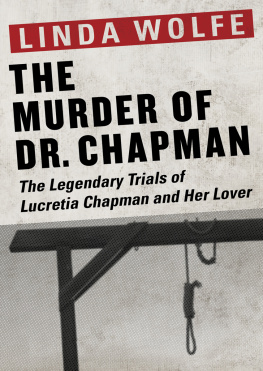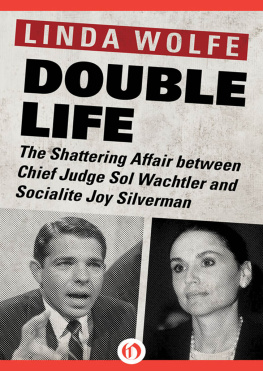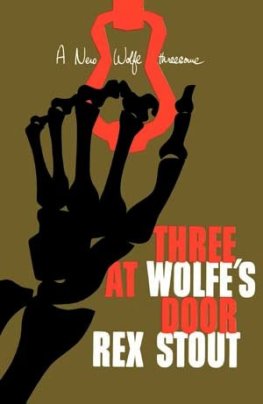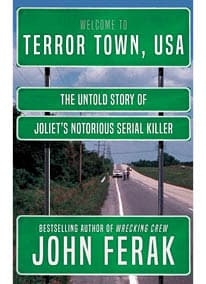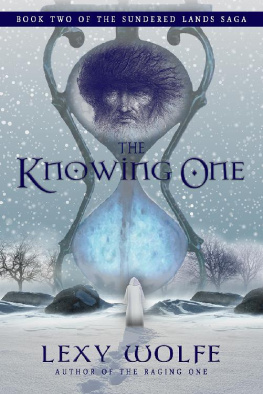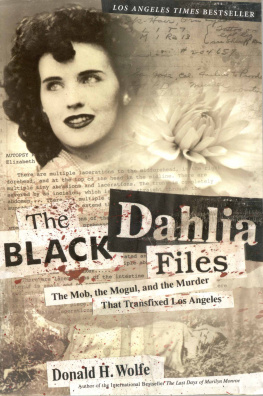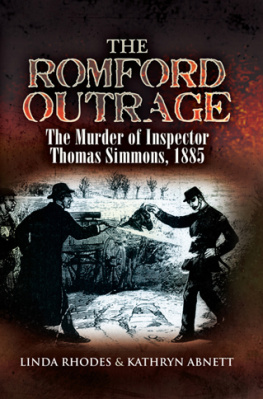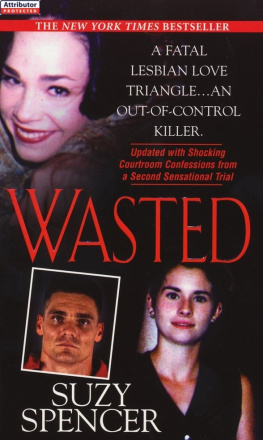By Linda Wolfe
WASTED: THE PREPPIE MURDER
THE PROFESSOR & THE PROSTITUTE
AND OTHER TRUE TALES
OF MURDER & MADNESS
PRIVATE PRACTICES
WASTED
The Preppie Murder
Linda Wolfe
Copyright 1989 by Linda Wolfe
All rights reserved, including the right of reproduction in whole or part in any form. For information, address Irene Skolnick Literary Agency, 2095 Broadway, Suite 307, New York, NY 10023.
ebook ISBN: 9780786754700
print ISBN: 9780786754694
Distributed by Argo Navis Author Services
Contents
For my daughter, Jessica
The outlaw of justice always keeps in his heart the sense of justice outragedhis crimes have an excuse and yet he is pursued by the Others. The Others have committed worse crimes and flourish. The world is full of Others who wear the masks of Success, of a Happy Family. Whatever crime he may be driven to commit, the child who doesnt grow up remains the great champion of justice.
GRAHAM GREENE, Ways of Escape
PROLOGUE:
THE END OF SUMMER
On an August evening in 1986, eighteen-year-old Jennifer Levin, decked out in a white camisole, a pink and white miniskirt, and little glass earrings that shone like diamonds, entered her favorite New York bar and began looking for nineteen-year-old Robert Chambers, a friend she hoped would be there. But the chic Upper East Side pub was crowded and she didnt see him at first. She saw instead the usual masses of wealthy and sophisticated prep school students and graduates who had made the bar their home away from home all summer. Some thronged the old-fashioned jukebox, some sat two-to-a-chair at little gingham-covered tables, some were calling out their drink orders through a three-deep crush at the long wooden bar, some were pushing out through the narrow entranceway to smoke marijuana on the sidewalk. The noise was intense, and the air was filled with the festive abandon of the end of summer.
Jennifer joined in the spirit of the place. She frolicked with her friends, eventually found Robert, flirted with him, and late that night left the bar in his company.
Two hours later, as a warm and brilliant August sun began to rise, she was found in Central Park by an early morning bicyclist. She had been strangled. Her face and body were covered with bruises, one of her eyes was swollen, and her earrings and money, except for a torn dollar bill, had vanished. So had her underpants. She lay on the ground spread-eagled, her bra and camisole pushed up around her neck, and her miniskirt bunched up about her waist.
Someone had raped her, the police thought when they arrived at the scene. They speculated that the attacker had been an unconcerned, callous individual. He had left her breasts and genitals on view. A stranger, no doubt, they concluded.
Yet eighteen hours later, Robert Chambers confessed to having caused her death. It had been an accident, he said. He and Jennifer had decided to have sex in the park but shed suggested kinky acts, and then gotten extremely aggressive. Shed hurt him, and when she wouldnt stop and he couldnt take any more pain, hed unthinkingly reached up, put his arm around her neck, and flipped her off him. In the process, she had somehow died.
He spoke casually. She was a nice girl, he said. Easy to talk to. She was just too pushy. And he usedwith an odd twistthe language of gothic romances. She was having her way with me, he explained. Without my consent. But what was most remarkable about his confession was not his words but his tone. He sounded sorry for himself, convinced that although he was alive and Jennifer dead, it was he who had somehow been the victim of the girl who now lay lifeless in the morgue.
In the next few days the killing in the park began to mesmerize New York. Here was flaming youthand better yet, flaming rich youth. The girl and the boy involved in the tragedy had had all the advantages of being young and all the privileges that money can buy, and yet in the late hours of a single summer night they had lost everything. She was dead. He was in jail. And what had caused the tragedy? Sex, according to the headlines. In the prodigiousness of adolescent passion, newspaper accounts based on Roberts confession implied, the boy and girl had simply lost control. The story struck a chord with the public, reinforced popular beliefs. That having a good time is dangerous. That young people cant handle liquor and sex. And that the rich and the young are no better off than you and mebecause look what happened to that pair.
By the time Jennifer Levin had been dead a week, people throughout the city were discussing the case at their breakfast tables, on their coffee breaks, on supermarket lines. And at parties and dinners the subject of what had actually happened between Jennifer and Robert was a principal topic of conversation.
The media fed the publics obsession. What was quickly dubbed the preppie murder became front-page and top-of-the-hour news, and battalions of reporters marched forth to dig up any information, however peripheral, that would shed light on the principals and their circle of fun-loving pampered city teenagers. The groups drinking, its drug use, its promiscuity, its extravaganceall were explored as if a new tribe, an anthropological phenomenon, had just been discovered.
In the next two years the preppie killing became one of the most widely covered murder stories in New Yorks history. Yet still people wondered about it, for the story was haunting. It was particularly haunting to parents, who kept asking themselves if Robert and Jennifer could, but for the grace of God, have been their children.
In the late 1950s, a pale, skinny young Irish woman named Phyllis Shanley arrived in the United States, her mind ablaze with extravagant daydreams. She had been poor in Ireland, had grown up, the eldest of six, on a back-country farm in which the principal fuel for cooking and even for fighting the omnipresent dampness had been the peat her father and brothers chopped laboriously from bogs behind the house. She had escaped the farm, gone to Dublin to study nursing, learned in the citys dreary Victorian hospitals how to deliver babies for women who couldnt afford doctors and how to care for poor sufferers from tuberculosis and other communicable diseases. But her experience and training had not brought her prosperity. Prosperity did not come easily in Ireland.
America was another story. In this new country she might flourish. Become anything she wanted to become. America was the land of opportunity, a place where what mattered was not what people had been in the past but what they made of themselves once they were here. And if they made of themselves something worthy, their children and grandchildren might never know hard times and might even, God willing, become rich and powerful. Even the children and grandchildren of Irish immigrants. By the time she arrived in the United States, people were saying the country might even have its first Irish-Catholic president soon. John Fitzgerald Kennedy, the junior senator from Massachusetts and a man but three generations removed from Irelands hardships, was going to run for the office. Learning the ropes in her new country, Phyllis dreamed classic immigrants dreams, imagining a golden life for herself and her as yet unborn heirs. And in her dreams she took literally the mythic American promise that on these shores a person could be the equal of any man or woman in the land.
She was not averse to hard work, and she quickly began plying her profession here, taking a job at a large New York hospital and doing private-duty nursing as well while waiting for fortune to smile on her. In three years it did. At a lively dance sponsored by an Irish organization, she met a handsome young man who several times during the evening asked her to be his partner and eventually asked her to be his lifes partner as well.
Next page


